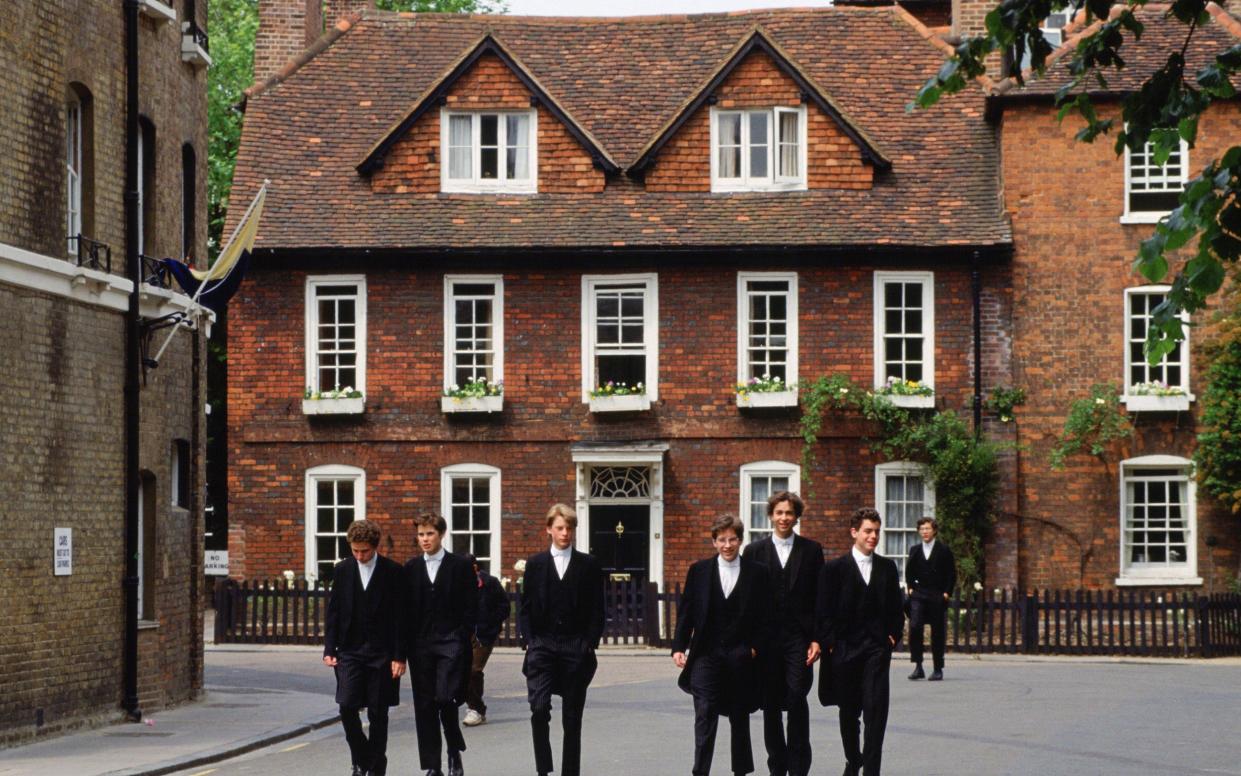Eton and Wellington among schools calling for better mental health support for pupils

Eton and Wellington colleges have warned that pupils are being let down by delays in accessing mental health support after the pandemic lockdown.
The prestigious private schools have joined forces with other prominent independent and state schools to raise the alarm about a “mental health epidemic” since Covid school closures.
“The state of mental health provision in our country has reached a tipping point,” they said in a joint statement.
The Coalition for Youth Mental Health in Schools, which counts Eton and Wellington among its members as well as successful academy chains, said vulnerable pupils were “being let down by delays in the system and insufficient availability of care”.
The schools cited research showing that children in England were waiting 21 weeks on average for a first appointment with the NHS Child and Adolescent Mental Health Services (CAMHS).
The average waiting time recorded in February 2023 had increased by two-thirds in two years.
Little choice but to pay
Research by the coalition found that in some areas, the threshold for accessing CAMHS had tightened so significantly that schools and some parents feel they have little choice but to pay for private services. Some schools have even invested in their own CAMHS-trained nurses.
The coalition is calling on the Government to introduce mandatory waiting time targets so children and young people can access mental health support more quickly.
Sir Hamid Patel, chief executive of Star Academies, a top-performing academy trust, said: “Schools are doing exceptional work to support pupils who are struggling with their mental health, but there is only so much education providers can do alone.
“In the wake of the pandemic, waiting times are growing at the exact time when the need is greatest. There needs to be a much greater focus from Government on youth mental health services to ensure every young person has the opportunity to thrive.”
Rachel Hart, head of life advice at Lady Eleanor Holles School, an independent girls’ school in south-west London, said: “We urge the Government to act now to better equip schools to effectively mitigate the visible and significant impact of lockdowns on our children and young people.”
In a report two years ago, the powerful coalition called for additional investment to increase the number of school counsellors and specialist teachers.
Research they commissioned found that post-lockdown, 62 per cent of young people had become more frequently anxious or worried, 71 per cent more frequently lacked motivation and 42 per cent were more likely not to get any enjoyment out of life.
The schools called for far better provision from CAMHS. However, they will say on Wednesday that their “calls … for urgent action have gone unanswered”.
School observations sessions
The latest report, Solutions for a Crisis, found that pupils using in-school counselling services in some instances were pushed down CAMHS waiting lists. Researchers said this forces schools to decide between offering interim support or postponing it so that the pupil might be able to access specialised assistance sooner.
Public First, a research agency, organised a series of school observations sessions, expert interviews and a review of the available evidence to support the coalition members in making its recommendations.
The schools are calling for teacher training to incorporate mental health education, the establishment of a national network of wellbeing supervisors and a National Survey of Youth Mental Health.
Alice Vicary-Stott, director of safeguarding at Eton College, said: “Coming from a social work background, I am all too familiar with the constraints on public services and the increasing need for well-funded and effective provision for children who are struggling.
“I hope this report will encourage the Government to ensure every child in every school can access the correct support for their individual mental health needs. Staff need to feel empowered to support children and be able to point them to available and appropriate services.”
Jon Needham, director of safeguarding at Oasis Community Learning and vice-chairman of the coalition, said: “Schools are often on the front line when it comes to young people’s mental health issues. We are seeing a significant increase in children who need support, and a worrying decrease in the resources available to them, all within a fractured system that is too difficult for most to navigate.
“It cannot be for schools alone to fix this problem, it calls for all parts of society, families, local authorities, government, health services and charities to work together to give every young person the support they need, when they need it.”

